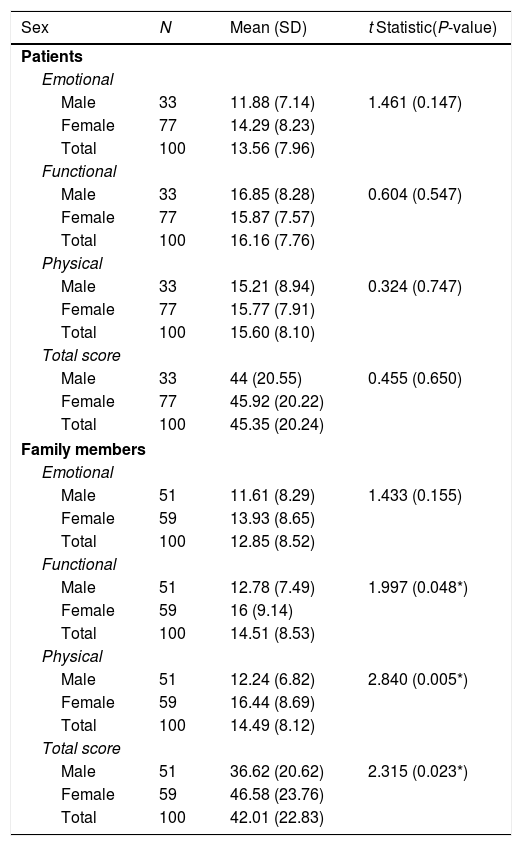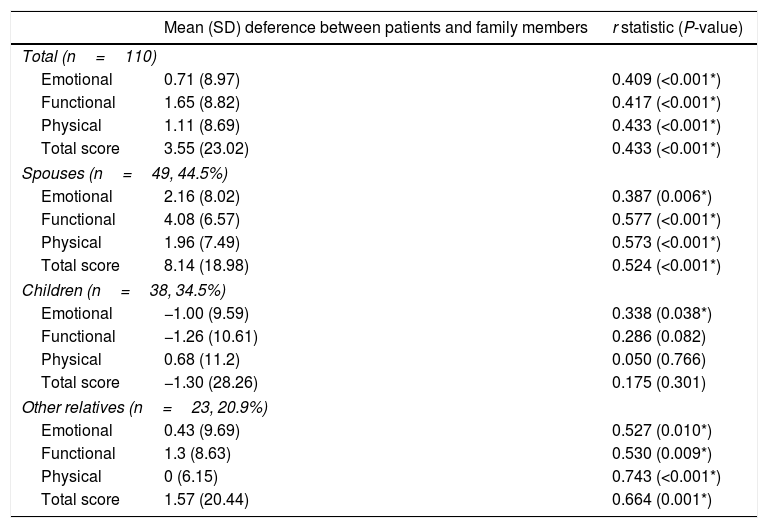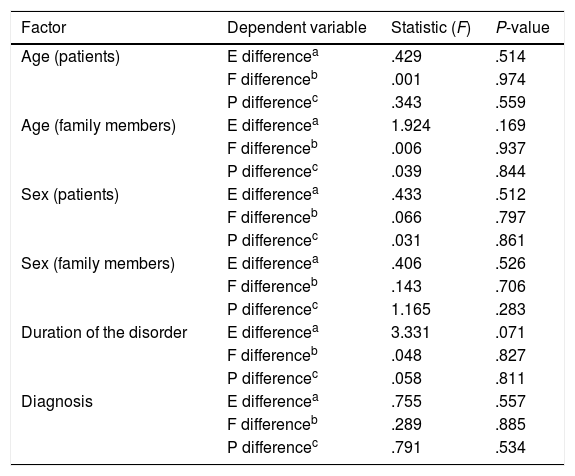Family members play a major role in the assessment and final result of the treatments of patients. The goal of the present study was to evaluate how much the perception of patients’ family members could be trusted regarding the vertigo and imbalance which they experienced.
Materials and methodsA cross-sectional study was conducted on 110 patients and their family members who were referred to the Central Vestibular Clinic in Mashhad from April 2018 to September 2019. Family members were categorized as spouses, children, and other relatives of patients. Patients and their family members separately completed the Dizziness Handicap Inventory (DHI) by the paper and pencil method. DHI has a high reliability, validity, and internal consistency.
ResultsMean DHI scores of patients and their family members were 45.35±20.24 and 42.01±22.83, respectively. The correlation between DHI scores of patients and family members, except children, were significant (p<.05).
ConclusionA relatively weak to moderate relationship between the perception of patients and their family members, except children, was found. They were more aware of the physical aspects of vertigo and imbalance than the emotional ones.
Los familiares juegan un papel principal en la evaluación y resultado final de los tratamientos de los pacientes. El objetivo del presente estudio fue evaluar cuánta percepción de los familiares del paciente merece confianza en cuanto al vértigo y el desequilibrio que experimentan los pacientes.
Materiales y métodosSe realizó un estudio transversal en 110 pacientes y sus familiares, que fueron derivados a la Clínica Vestibular Central de Mashhad de abril de 2018 a septiembre de 2019. Los familiares fueron categorizados como esposos, hijos, y otros familiares de los pacientes. Los pacientes y sus familiares completaron separadamente el Dizziness Handicap Inventory con lápiz y papel. Dicho inventario tiene una gran fiabilidad, validez y consistencia interna.
ResultadosLas puntuaciones medias del Dizziness Handicap Inventory de los pacientes y sus familiares fueron de 45,35±20,24 y 42,01±22,83, respectivamente. La correlación entre las puntuaciones de Dizziness Handicap Inventory de los pacientes y sus familiares, exceptuando los hijos, fue significativa (p<0,05).
ConclusiónSe encontró una relación de relativamente débil a moderada entre la percepción de los pacientes y sus familiares, exceptuando los hijos. Ellos fueron más observadores de los aspectos físicos del vértigo y el desequilibrio, en comparación con los aspectos emocionales.









